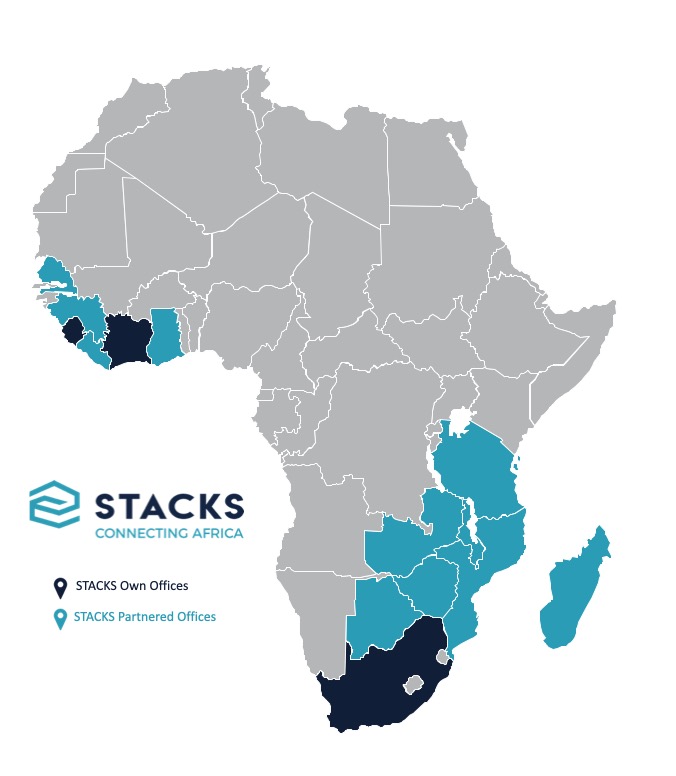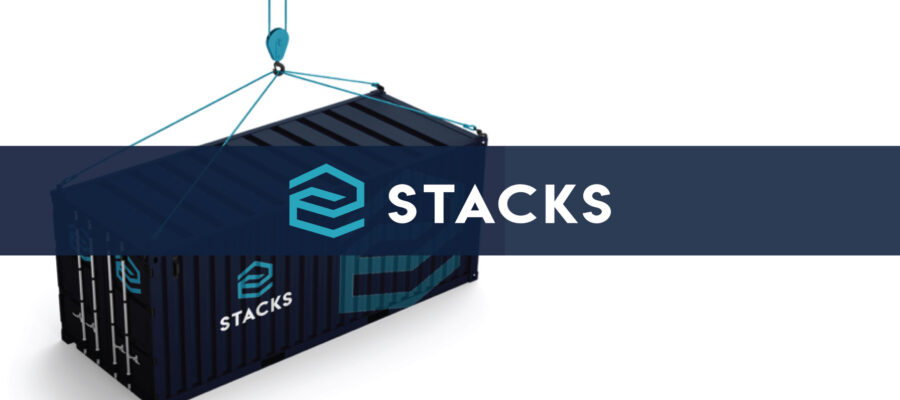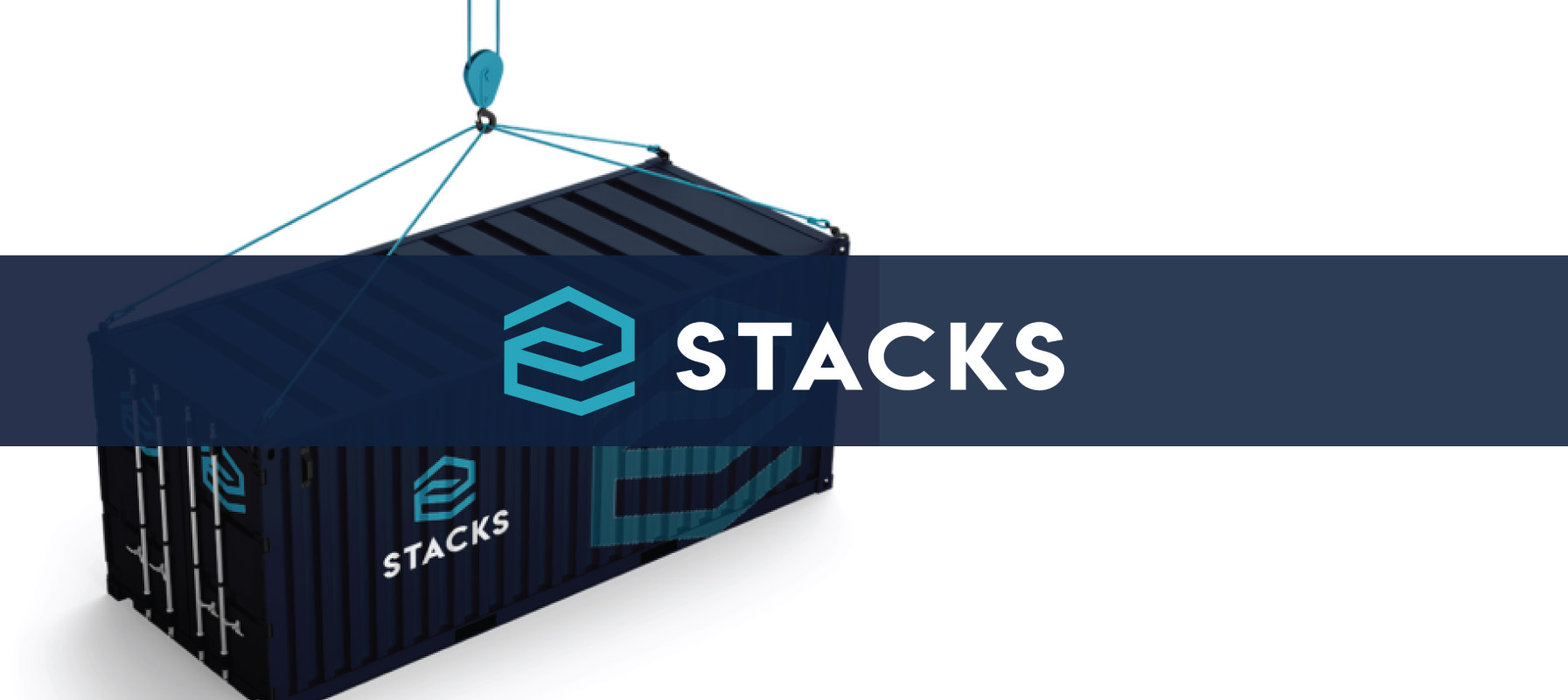Interview with
Mr. Michael De Wit
CCO

Stacks is relatively new on the block. Can you tell our readers more about the company, its background and the reason for establishing it? The name Stacks, how come?
Stacks Africa has proudly operated for over 15 years, having been originally incorporated in 2010. The company began as a South African freight forwarding entity under the Comexas Group. In 2019, following a management buyout, we rebranded as Stacks Africa – marking the beginning of a new chapter focused on expanding our footprint across the African continent.
As part of our strategic growth, Stacks Africa has since acquired established logistics entities in Côte d’Ivoire and Sierra Leone, reinforcing our presence in West Africa.
Stacks Africa is a full-service logistics provider, combining extensive industry expertise with innovative technology at the core of our operations. We specialize in delivering reliable, end-to-end logistics solutions, with a strong focus on project and out-of-gauge (OOG) cargo, ensuring seamless movement across Africa and beyond.
To enhance visibility and efficiency for our clients, we have developed Stacks Connect – a digital platform offering real-time tracking and a centralized dashboard to manage the complete logistics scope throughout the duration of each project.

Many claim to be Africa experts, but when push comes to shove, many actually delegate to someone else on the continent. Is that a correct assumption? And can you tell our readers about WHY they should contact Stacks for any would-be shipment?
That is a fair assumption. Africa is complex – geographically, politically, and commercially – and many “Africa experts” are often just routing desks that outsource operations when things get challenging on the ground.
At Stacks Africa, we do it differently.
We are based in Africa, with teams across the region who live, breathe, and solve Africa’s logistics challenges daily. Aside from our teams on the ground, with over 25 years of experience in Africa’s logistics landscape, both Olivier Vanreusel (Group CEO / Founder) and myself and the team have spent many years in various locations across Africa, bringing a strong element of on the ground / first-hand knowledge to the business and our service offerings.
Why should customers choose Stacks?
At Stacks we offer real execution capability, not just coordination. From navigating unpredictable customs environments to last-mile transport in regions with poor infrastructure, we don’t just understand Africa – we operate in it, we adapt to it, and we succeed in it. Our local presence, regional partnerships, and operational agility mean we deliver where others default to intermediaries.
Where in Africa do you currently have your offices established? Head office, branches?
Our head office is located in South Africa, which serves as our operational and strategic hub for regional and international trade. We have established offices in Sierra Leone and Côte d’Ivoire, enabling us to serve both West and Southern African corridors effectively. In addition to these offices, Stacks Africa has strong agency agreements and vetted operational partners across West and East Africa. This footprint allows us to offer Sub-Saharan African project cargo solutions with the accountability and responsiveness of a local operator.
Inland transport via South Africa to destinations beyond – is that something that you are capable of in Stacks?
Absolutely. Cross border transport from South Africa into landlocked countries such as Zambia, Zimbabwe, DRC, Botswana, and Malawi is a core part of our service portfolio. We manage everything from customs transit clearance through South Africa, scheduling and planning vehicles to transport the cargo cross border, and when required, facilitate the road surveys and escorts for out-of-gauge cargo.
Many shipowners claim to be door-to-door providers, but are they really? Do you feel they are competing directly with you? How will you counter their efforts?
It’s a valid observation – many shipowners market themselves as door-to-door providers, but their strength lies at sea, not on land. Once cargo hits the quayside in Africa, the real test begins. That’s where local expertise, ground resources, and operational control matter, and that’s where Stacks excels.
We don’t view shipowners as direct competitors; rather, we see ourselves as complementary partners who add value beyond the vessel. Where we differentiate is in our ability to execute the complex inland leg, which often includes multi-country coordination, unpredictable customs processes, and remote project sites. Our approach is to work collaboratively but assertively, ensuring we own the ground game and deliver reliability from port to project site.
Speaking of South Africa, could you elaborate for our readers who are NOT Africa experts about which ports are generally used for project cargoes or are more suited for it? We heard about port congestion troubles in South Africa recently, how is the situation now?
South Africa’s main ports for project cargo are Durban, Richards Bay, Coega and Cape Town, depending on the cargo’s nature and final destination. Richards Bay is particularly well-suited for bulk and heavy cargo with good road and rail links into the interior and into Mozambique, Zimbabwe, and Zambia. Durban remains the busiest multipurpose port, while Cape Town handles more specialized and breakbulk shipments for the Western and Northern Cape regions.
Port congestion has certainly been a concern in recent years – largely due to equipment shortages, labour issues, and broader inefficiencies. That said, we’ve seen gradual improvement through targeted infrastructure upgrades and collaboration between port authorities and private sector players. At Stacks, we mitigate congestion risks through proactive planning, flexible routing, and port-specific strategies to avoid costly delays.
Customs clearance in South Africa – difficult? If a project is destined for Zambia, for example via Durban, where does customs clearance take place?
Customs clearance in South Africa is structured but not without its challenges. The key is preparation – having the right documentation, correct HS codes, and compliant declarations. For shipments moving to Zambia via Durban, we typically recommend bonded transit clearance in South Africa, with final clearance occurring at the Zambian border, such as Kazungula or Beitbridge.
We manage the full customs chain: from port entry through bonded movement to final delivery. Our team handles carnets, RIT (Removal in transit) and RIB (Removal in Bond) clearances, and all necessary inspections, reducing risk and ensuring compliance across jurisdictions.
How do you view the market for the remainder of 2025?
We see continued growth in energy, mining, and infrastructure development projects across Sub-Saharan Africa, particularly in West and Central Africa. Countries like Ivory Coast, Senegal, Namibia, and the DRC are driving demand for specialized transport and complex logistics.
That said, volatility remains a factor – currency instability, elections, regulatory shifts, and supply chain disruptions are all in play. At Stacks Africa, we’re doubling down on resilience: strengthening our regional network, investing in tech-enabled visibility, and deepening our relationships with reliable partners on the ground. We believe that nimble, African-rooted logistics companies will outpace global giants when it comes to execution across the continent.
How is it best for our readers to contact you?
Contact details:
Michael De Wit
Email: Mdw@stacks.africa
Mobile: +27 71 304 0338
Website: https://stacks.africa/



